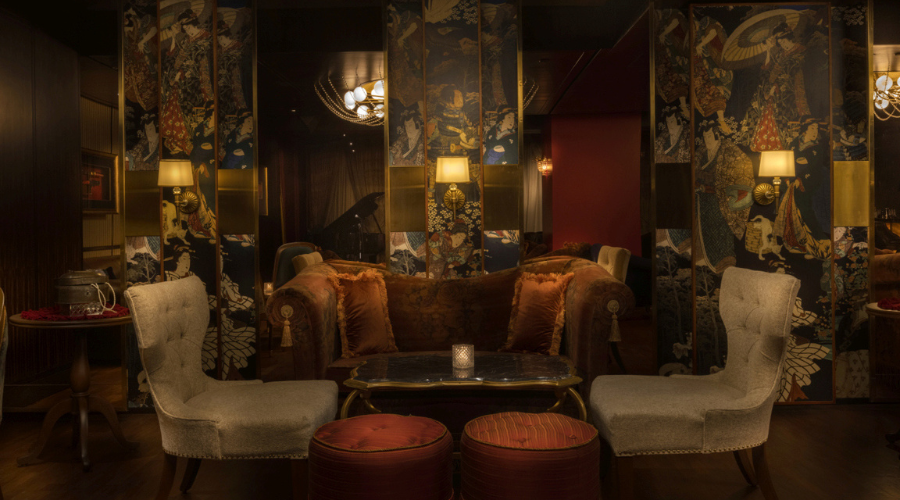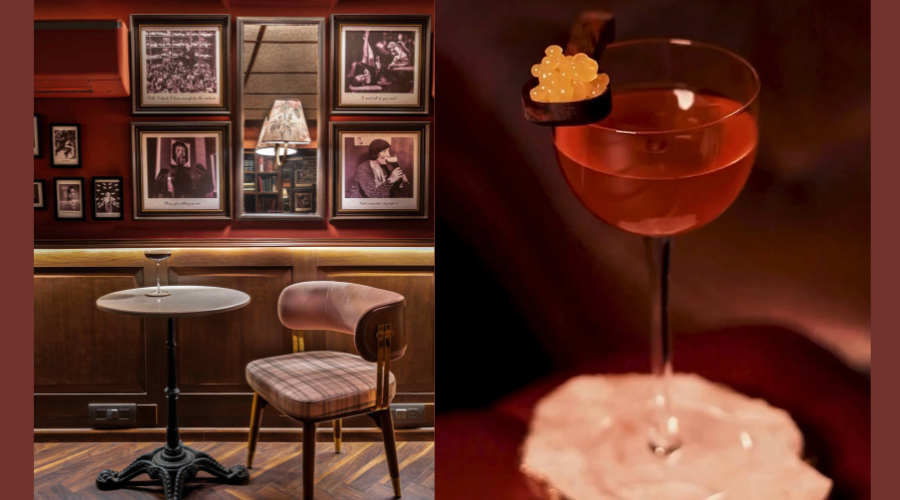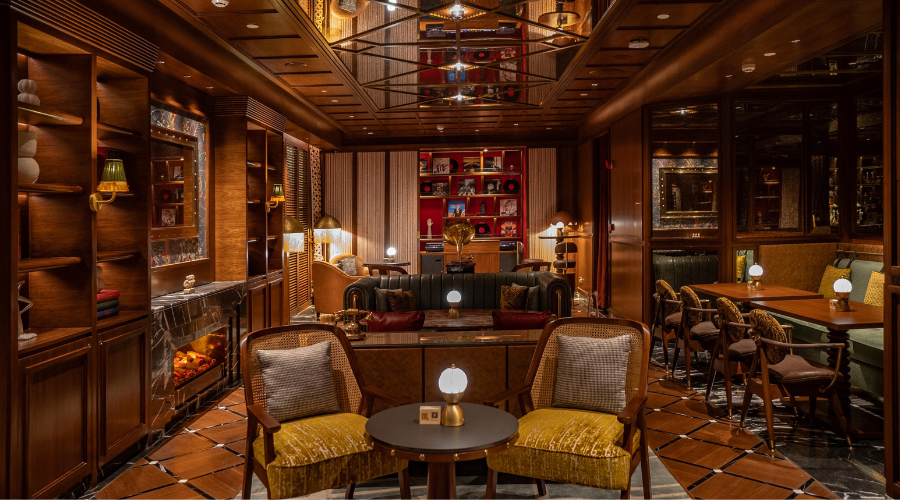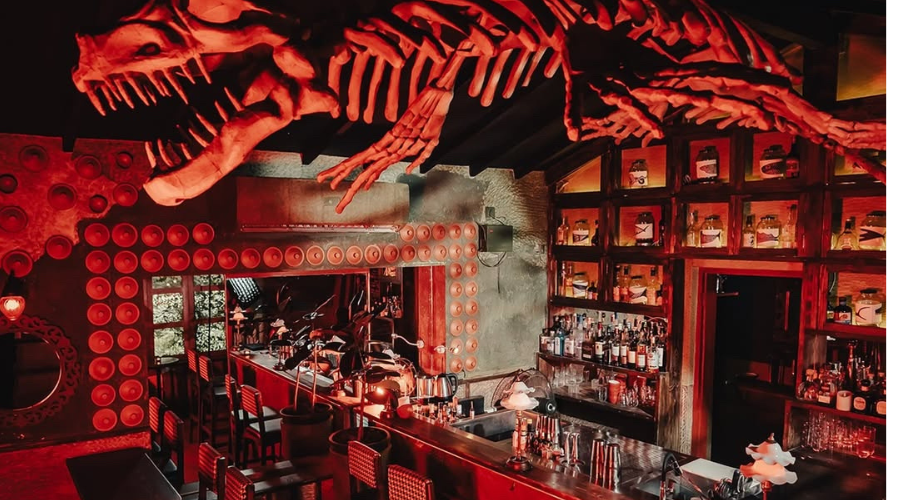India’s speakeasy scene is pulsing with rebellious energy. Elevating cocktail culture from being mere bars hiding behind false walls, the trend has caught on from the original idea of being ‘hidden’ to a more popular, PR driven hype-building without giving away the exact location. As theaters of liquid artistry where passwords unlock more than doors, and every pour carries the weight of clandestine tradition, these spots are slowly becoming preferred for their unique appeal, surprising ambience and great cocktails!
What Is A Speakeasy?
The ‘speakeasy’ was born from Prohibition’s 1920 ban in America, that turned ordinary citizens into cocktail conspirators overnight. Over time, these clandestine drinking dens, named for the hushed tones required to avoid detection, transformed from desperate necessity into a cultural phenomenon, spawning jazz legends, cocktail innovation, and the romantic notion that the best experiences happen behind unmarked doors. When Prohibition ended in 1933, the speakeasy should have died—instead, it evolved into pure theater, a performance of exclusivity that crossed oceans like contraband gin.
Asia embraced this imported rebellion with particular fervour, especially in cities where colonial hangovers and complex liquor laws created natural breeding grounds for hidden bars. Hong Kong’s cramped quarters made secrecy an art form, Tokyo turned speakeasies into intimate omakase experiences, and Singapore’s strict regulations paradoxically birthed some of the world’s most creative clandestine cocktail culture.

India, with its own tangled relationship with alcohol with state-by-state liquor laws that still baffle locals—found in the speakeasy tradition a perfect marriage of necessity and sophistication, transforming legal complexity into liquid poetry. From Goa’s sun-bleached coastline to Delhi’s political corridors, a new generation of bar owners are rewriting the rules of Indian nightlife, one perfectly balanced cocktail at a time. They’ve taken the speakeasy’s DNA—secrecy, craft, intimacy—and infused it with our sub-continental soul. “At Ocho, we don’t just serve cocktails — we serve a secret,” said Rajit V. Shetty, Managing Director, Ramee Group of Hospitality that operates a speakeasy in the heart of Bandra in Mumbai.
Ocho slips into the city’s frantic rhythm like a whispered conversation in a crowded train—intimate, necessary yet impossible to ignore once discovered.
“A true speakeasy is more than just hidden doors and low lights; it’s about intimacy, intention, and storytelling”, Shetty says.
The modern speakeasy sits atop the group’s Japanese restaurant Megumi, but getting there is not straightforward. A back alley staircase down leads to a door that looks rather inconspicuous, and opens into an artfully designed space that sparks intrigue. Embracing the modern speakeasy concept, the décor blends ancient Mayan mystique with bold American street food and inventive cocktails.
With moody interiors the space transforms from refined dining to buzzing nights. The cocktail program takes inspiration from the 13 moons of the Mayan calendar—each crafted to reflect a unique personality and story. Recently, an intimate interview with actress Tilottama Shome at the location went viral for her bold, unfearing revelations while being candid and wiping away tears, shot in this space.

“It’s not just about exclusivity, but also about crafting a space where time slows down and conversations take center stage. That, to us, is the true soul of a speakeasy—elegance wrapped in mystery”, Shetty added.
Pass Code Only, one of the oldest speakeasies in India started by Rakshay Dhariwal in 2011 in Delhi, now has an outpost in Mumbai, many accolades for its new ‘Forbidden’ menu that highlighted controversial ingredients like MSG, and continues to operate as India’s most enigmatic cocktail conspiracy, where even the name is a challenge (popular as PCO now) and entry feels like joining a resistance movement. Last year they launched PCO 2.0, a speakeasy within a speakeasy. With their ‘Forbidden’ menu holding some serious mixology inspirations, it is worth striking out for that passcode, that allows you entry into the building.
Modern Interpretations Of The Hidden Bar
They were meant to be illegal bars, but the modern speakeasy must follow the rules. Thus, in Bengaluru, ZLB23 within The Leela Palace Hotel is akin to the city’s tech scene—innovative, exclusive, and always one step ahead of the mainstream crowd that hasn’t cracked its code yet. It has featured on many lists as one of the best bars and cocktail programs in the country.
At Hoots in Delhi hidden inside Perch in Vasant Vihar and KMC in Mumbai, hidden inside Ekaa in Fort, cocktail conversations and delightful service have attained a loyal, discerning crowd over the years.
Beyond Metros
Those like me who frequented the erstwhile Escobar for a casual tipple in the evenings, now discover the place transformed slightly but stirring up the same energy as Pablo’s. Goa always has, and continues to promote the idea of bars and taverns, and speakeasies are adding more vibe to the scene.
In Assagao, Room One – a collaborative creation of Siddharth Kerkar, Vipin Raman, and Bonita Mascarenhas, is an intimate space where contemporary art meets inventive mixology and relaxed conversations are encouraged to linger.
Behind a gleaming copper bar, designed by Siddharth himself, Vipin brings flair to the menu with cleverly named, bold-flavoured concoctions like the Disco Porn, Kinky Kerkar, and Invisible Paloma. Perched above Sopó, a Burmese kitchen, Room One offers a cozy yet vibrant cocktail experience that art and drink enthusiasts will appreciate.
Not far off, you’ll find LouLou—an 18-seat speakeasy nestled in the attic of The Assa House, a modern European dining space. Known for its intimate jazz evenings and elevated atmosphere, it’s one of the many experience-driven bars reshaping Goa’s nightlife.

Meanwhile, in South Goa, MoFo injects a rebellious spirit into the scene. With a deliberately unlisted address and a cheeky name that hints at its playful identity, this hush-hush bar offers craft cocktails by Tobias Carvalho in a laid-back, no-frills setting. There’s no music or hype—just good drinks, global bar snacks, and the thrill of being in on a well-kept secret.
Behind an unassuming door inside the Hyatt Centric Sector 17 in Chandigarh, lies the city’s inaugural speakeasy. PVT LTD, where prohibition-era cocktails meet Punjabi panache, is the newest F&B offering by the hotel. While their Asian restaurant Koyo Koyo already draws the fine dining crowd in the city, this invitation-only den operates like a secret society only for the discerning, complete with a coded entry, personalized whiskey cabinets and a member’s cigar humidor that would probably make Le Corbusier weep with envy.
Each cocktail is historically curated in a neat book, narrating tales from the Prohibition Era while smooth jazz spins on vinyl. The kitchen performs culinary alchemy, transforming tempura techniques and togarashi crusting into gunpowder-spiced revelations. Their Naan Bomb detonates with flavour, while cocktails like the Harlem Renaissance brings bourbon together with zesty Njansa spice bubbles. Between the vintage treasures dotting dimly lit corners, PVT LTD proves that India’s most planned city was always meant to harbour beautiful secrets—you need only the right password to find them.
Clearly, speakeasies aren’t just places to drink, but hidden, intimate spaces where India’s cocktail revolution unfolds one perfectly chilled coupe at a time, proving that the best stories are still told behind unmarked doors.
Read More: Does Delhi Need Queer-Exclusive Bars And Cafés? Here’s What People From The Community Think
Also Read: Have You Checked Out These 6 New Restaurants And Bars In Goa Yet?









